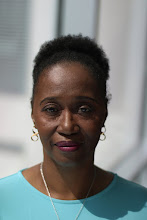STORYLINE: Ghana provides a vivid, if
sometimes chaotic setting for this second novel by Marilyn Heward Mills. The
main characters are four women, who are transplanted from Europe. Three are
married and two are raising children. The fourth has children, but isn’t
married, and fights an ongoing battle with the children’s father.
The
women view themselves as living in an alien society. To some extent, and based
on the difference in their lifestyles, they are outcasts and so they form a
bond of friendship. They support and cheer each other on during difficult times
and are more family than friends. Among
their challenges are episodes of infidelity and spousal abuse. All this, while
coping with the dangers that come with social upheaval.
PLAYERS: Eva, Dahlia, Margrit and Yelena
are diverse in character and strong in their individual ways. Each woman’s
experience is touching and relatable.
Eva
has a seemingly perfect marriage, children and an interfering mother-in-law who
descends unannounced and takes charge of her home. However, I believe it is the way that Eva
views the locals that makes me somewhat unsympathetic to her.
Throughout
the novel, the Ghanaians are portrayed as dishonest, and I got impatient with
Eva when problems developed between herself and her husband. I understand
having one’s trust betrayed and was sorry for her, but her husband was made out
to be such a good man that I couldn’t hate him for what he had done.
I LIKED: the fact that the author
describes life in Ghana so well that I feel I have lived through the dry
season, walked through the streets and seen the empty shelves in stores, ‘the
dirt and the cloying stench of clogged drains’, heard the irritating
mosquitoes, the rain coming down in sheets and tasted the variety of food.
The
women rally and survive their challenges and come full circle to appreciate the
life they have, no matter that the society they live in is chaotic, at
best.
I COULD HAVE LIVED
WITHOUT: what I
felt was stereotyping. The male figures in the story seem either good or bad,
so when Eva’s husband falls from grace, I couldn’t fathom how their problems
might end. Vincent, another character, has no redeeming qualities. He is abusive,
cruel and dishonest, someone you love to hate. His wife, Dahlia, is a perfect
doormat and though she thinks he has turned into a monster, there is nothing
from her perspective to indicate that he was ever a better person.
Within
the story, the rich are stereotyped as plunderers and in some instances, are
dragged away and shot after accusations of profiteering and treason by the authorities.
Instead of being simply terrifying, the coups strike me as irrational and
disorganized, which I suspect is the writer’s intention. Each time, a coup is
declared, it isn’t long before the current leader is deposed and another takes
his place.
OVERALL COMMENTS: I came away from the story
with the idea that Ghanaian society is in tatters as a result of corruption, the
divide between rich and poor insurmountable. The men are drawn as dishonest and
irresponsible, and the women accommodating.
In
some respects, this novel reminds me of the White Woman on the Green Bicycle,
in that the main character is an expatriate who is fed up with her adopted home. Like that character, Eva is aware of the
plight of the locals through her employees and the unavoidable scenes that
greet her on the street. She has a conscience, but knows she can’t help
everybody. However, she is detached from the suffering around her. The high
fence and secure gate reinforces that separation from reality.
The
social unrest is also present in the White Woman on the Green Bicycle, so too
is the reality that the poor live a far different life from expatriate who has
relocated to a foreign land.
I
laughed and cried over the situations that blindsided the group of friends, but
at times, I was unable to suspend my disbelief. The pacing of the story is good, the prose
fluid and the ending satisfactory.
SOURCE: People with Voices Full review posted here.
RATING: The
Association of Foreign Spouses is well written and worth the time it took me
to read. However, in comparison to Heward-Mills’
first novel, Cloth
Girl, the book fell
just shy
of awesome.





























